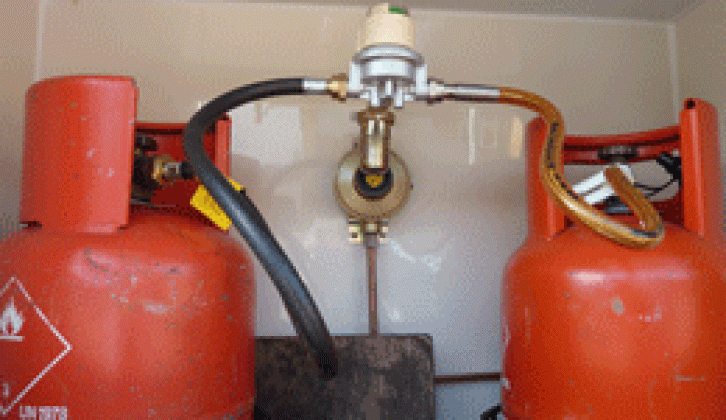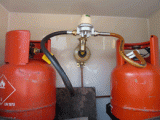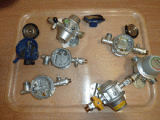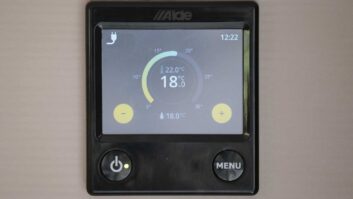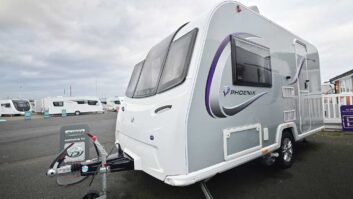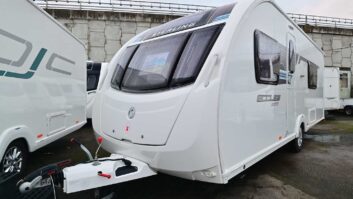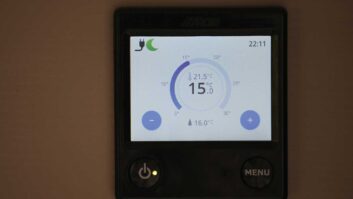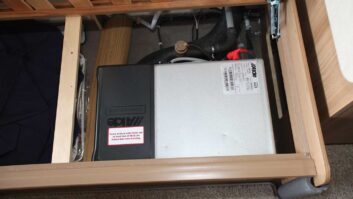CARAVANNERS HAVE reported the failure of their LPG regulators since the industry changed from fitting regulators directly to gas cylinders to fitting them to the bulkhead in caravan gas lockers.
The change was followed by a blame-game, as Calor and Truma started pointing the finger at each other. During all that time, the people who suffered were caravanners.
[tl:gallery size=260×195]Gas supplier Calor said the problem began because regulators were being fitted below the level of the valve on the gas cylinder. Caravan manufacturers responded by raising them but the problem persisted. Calor next said that hoses were at fault: plasticisers used in the production of the hoses had leeched into the gas, the company alleged, affecting both propane and butane.
Truma denied that its hoses were the cause, and said the real cause was a contaminate in the LPG. This oily substance entered the regulator and caused the tiny seal, which allows the LPG into the caravan’s gas pipes, to swell and block the orifice. Calor then said that if stainless-steel hoses were used the problem would go away. But it hasn’t.
Practical Caravan has been contacted by readers who say their gas regulators are still failing. When we asked Calor for a response, it sent us a statement and a copy of the bulletin it had issued on the subject in 2006.
In response to the ongoing problem, Truma invited Practical Caravan, representatives of both the main clubs and a workshop manager to meet and discuss the matter. Truma was represented by marketing director Len Latham, sales and marketing manager Adam Shanley, and service managers Richard Godber and Chris Aston. They pointed out that Truma’s regulators are designed and built to the highest standards. They are made in Germany and the quality control is rigorous.
They said that absolutely no liquids – whether oil or anything else – are used in their manufacture. But when they had taken a number of failed regulators apart, an oily contaminate was clearly visible in them. Evidently, it’s getting in from somewhere.
To be fair, about 3% of the 40,000 regulators Truma supplies to the UK actually fail. This is a small ratio, but failures have also been reported outside the UK – with Italy in particular being mentioned. I have heard of occurrences in Australia and New Zealand.
What caused considerable concern to all those was a case in which the contaminate got through the regulator into the gas pipes and as far as the appliances. This had resulted in all the gas pipes having to be replaced and the control valves on the appliances having to be cleaned out.
Myth-busting
I attended the Truma meeting with an open mind. This was even after I had read Calor’s statement, which was fairly convincing in its argument that the problem may have been caused by cheap imported hoses. Truma’s representatives agreed that such products may lead to faults, but said that their company had checked all its own hoses and had not found any problem with them. It had also supplied samples to Calor, which said it would test the pipes and report back. By the time this report was written, Calor had not done so.
The workshop manager, Steve Monk from Broad Lane Leisure, said his company’s Alcester branch has fitted only stainless-steel hoses since January 2009, but was still seeing regulator failures.
Barry Norris, former technical officer of the Camping and Caravanning Club, said Calor had categorically denied that any contaminates – termed heavy ends – could get past the cylinder valve. The cylinders are regularly steam cleaned at the filling plants.
One regulator for both
Truma and Calor report that they have done extensive testing to replicate the problem under controlled conditions to understand how it happens. Neither has succeeded.
Interestingly, the failures only started when the industry dispensed with separate regulators for propane and butane. These attached directly to the cylinder and operated at 37mbar and 27mbar, respectively. The single regulator introduced in their place operates at a pressure of 30mbar.
With the old system, when all the appliances were turned off, the pressure in the hoses was at a low pressure of 37 or 27mbar. With the newer bulkhead-mounted regulators, when the appliances are turned off, the pressure in the hoses is the same as in the cylinder, which is high pressure. Whether this has anything to do with the problem is a moot point.
[tl:gallery size=260×195]During our discussions we were shown a number of Truma regulators that had failed due to the oily contaminate. One in particular led me to the conclusion that the LPG itself needs further investigation.
We were shown a clip-on butane regulator with an oily residue. As it had been connected directly to the cylinder, with no hose between them, the oily contaminate must have been carried into the regulator with the LPG.
Further study needed
I came away from the meeting with many answers, but there were some lingering questions. To resolve these, the situation needs to be reinvestigated under the auspices of the technical committee of the National Caravan Council.
A university could be involved because it has the technical resources to carry out an impartial investigation. The research would no doubt be expensive, but if all major caravan manufacturers contributed, the cost to each company would not be prohibitive.
My concern is that the caravan industry as a whole may not be all that interested in solving the problem because it affects a small minority of its products. But if this were the case, it would show disregard for owners whose holidays are ruined by regulator failures. For them this isn’t a small problem: it’s a disaster!
In an attempt to help Truma with its own research I have fitted a Truma stainless-steel hose to one of the cylinders in my caravan and a contaminate trap between both cylinders and the regulator. I’ll regularly inspect the trap and report back on my findings.
